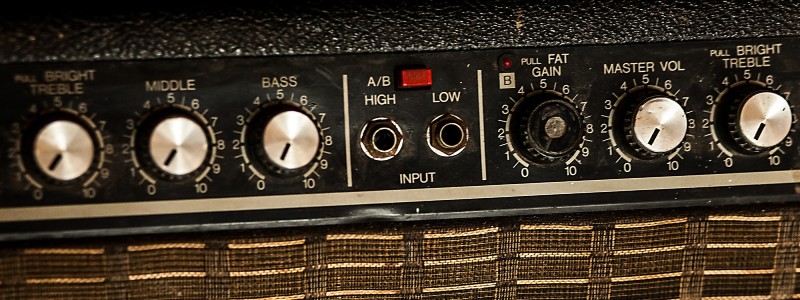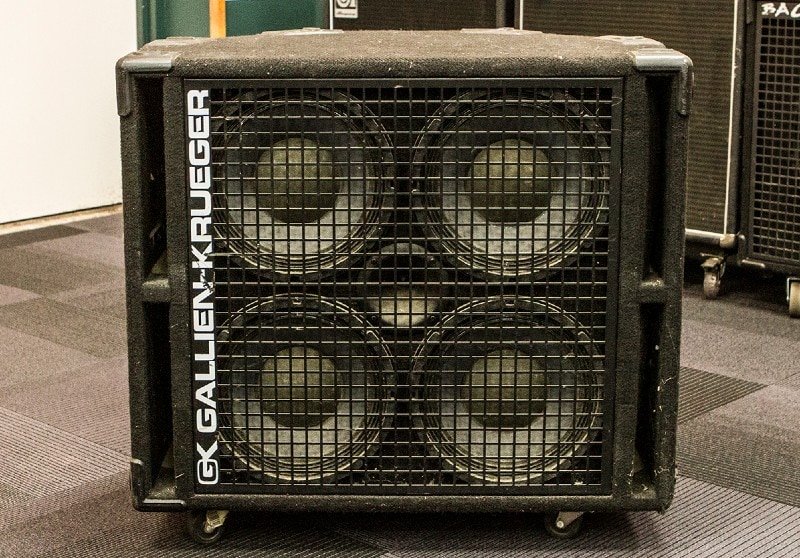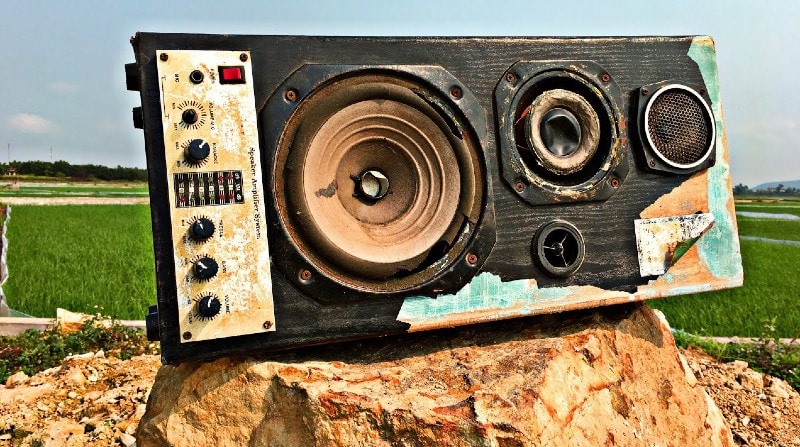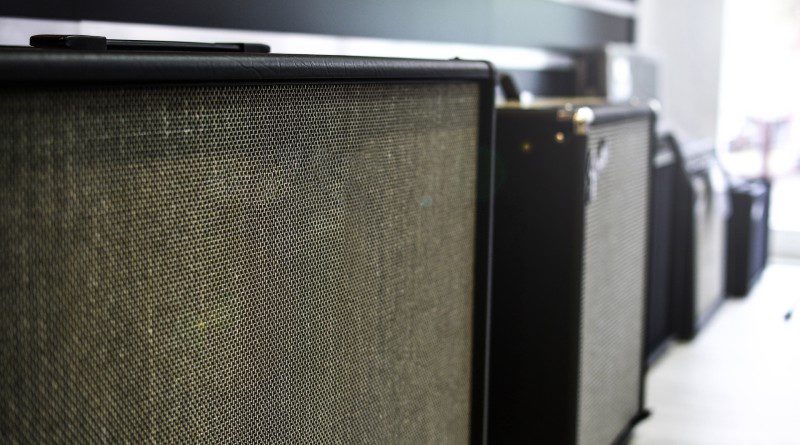A question that seems to come up regularly is, can you play a bass guitar using a regular guitar amplifier? Technically speaking, yes. The Jack is the same size, the pickups work in the same manner, when plugged in and turned on, a guitar amp will respond to a bass guitar. The real question is, should you play bass through a guitar amp?
In this KillerGuitarRigs guide, you will learn:
- What is the difference between a guitar amp and a bass amp?
- How will a bass guitar sound when played through a guitar amp?
- In what circumstances is it ok to use a bass guitar through a guitar amp?
- How to avoid damaging your guitar amp if you have no alternative?
Before moving on to the guide, check out these fast facts:
- Guitar amps are designed to accentuate mids and highs
- Bass amps are designed to pronounce lows and mids
- It’s generally safe to use a guitar amp for bass at bedroom volume levels
Contents
- What Is The Difference Between a Guitar Amp And a Bass Amp?
- How Will a Bass Guitar Sound When Played Through a Guitar Amp?
- In What Circumstances is it OK to use a Bass Guitar Through a Guitar Amp?
- How To Avoid Damaging Your Guitar Amp if you Have no Alternative?
- Final Thoughts On Playing a Bass Through A Guitar Amp
What Is The Difference Between a Guitar Amp And a Bass Amp?

As you might expect, a guitar amplifier is designed and voiced to respond to higher frequencies than a bass amplifier would be. This is influenced by the choice of speaker in the cabinet, as well as the setup of the electronics. Bass amps on the other hand are designed to be less responsive to highs, focusing more on the lows and mids.
The speakers in bass amps are generally larger than those found in guitar amps. Having a larger speaker cone allows the amp to push more air, which is essential for the low frequencies from the bass. The smaller speakers found in guitar amps aren’t able to respond in the same manner and will respond with a raspy tone.

Not only are guitar amp speakers smaller, but they aren’t quite as robust. The cone material is usually less sturdy, so when pushed beyond their limits, by excessive bass frequencies, for example, they are liable to “blow”. You might not be so worried if this happens to a generic unbranded bedroom amp, but if you happened to blow your Celestion Heritage Greenback you’d probably be quite upset.
Additionally, in order to keep the bass tighter and punchier, bass amps are normally closed back, while many guitar amps have open back in order to give an open, natural sound. By playing a bass through an open back cabinet, you’ll lose much of the focus.
How Will a Bass Guitar Sound When Played Through a Guitar Amp?

Playing a bass guitar through a guitar amp will definitely yield different tones than it would through a proper bass amp. Expect to hear mostly mids as these are the only frequencies from your bass that the guitar amp is voiced to respond to.
Because the lows will be missing, expect the sound to be more fuzzy. This can be partially addressed by adjusting the amplifier’s EQ settings to max bass, around 9 o clock on the mids, and treble at zero. If you do have a pedal board with an EQ pedal, you can further influence the sound by increasing the lows and reducing mids and highs before the signal even gets into the amp. This isn’t going to be perfect, but it should help to make the most of what you have.
At low volumes on low power solid state amps, the untrained ear may not even be able to notice the difference if the EQ settings are just right.
In What Circumstances is it OK to use a Bass Guitar Through a Guitar Amp?
There are occasions where you might actually find it useful to play your bass through a guitar amp. Bedroom sized practice amps for bass are much harder to come by on the used market, if you’re just starting out on the bass and want to play at low volume for practice purposes, a guitar amp might be all you need to get going.
If you’re recording, you might also be looking to experiment with different sounds and playing through a guitar amp can certainly provide a different tonal range. If this is being done using an amp of any significant value, only proceed under the knowledge that you could potentially cause damage to it.
In short, it’s best to limit the practice of using a bass through a guitar amp to bedroom level practice with a 10-20 watt solid state unit, or for experienced players, in recording scenarios with extreme caution.
How To Avoid Damaging Your Guitar Amp if you Have no Alternative?

If you don’t have access to a bass amp and you need to play through a guitar amp, there are a few steps you can take to help prevent damaging your amplifier.
First, keep the volume down. By keeping the volume low, you’ll reduce speaker movement. As pointed out earlier, guitar amp speakers are smaller than bass amp speakers, meaning they have to work harder to try and achieve the same low frequency output. This extra vibration can cause components to come loose and rattle, which will result in buzzing and an overall unpleasant sound.
Don’t add FX – like high volume, adding distortion will likely result in the speaker cone vibrating excessively.
Avoid using tube amps at all costs. Valve based amps are delicate at the best of times, and are expensive to buy, and expensive to maintain. Playing a bass guitar through a tube powered guitar amp is just plain abuse. Even regular guitar frequencies can rattle tubes loose, so don’t even need to imagine the havoc that the speaker trying to keep up with bass frequencies would wreak.
Final Thoughts On Playing a Bass Through A Guitar Amp
As described throughout this guide, there are indeed circumstances in which it is perfectly fine to play a bass through a guitar amp. However, it’s always best to use the right tool for the right job. You’ll get so much more from your playing experience by using the right kind of amplifier, and you won’t run the risk of damaging it through misuse.
By the way, while you’re here, check out our list of the best guitar amps under $100, our guide to solving amps picking up the radio, and our review of the modern classic Boss Katana.


